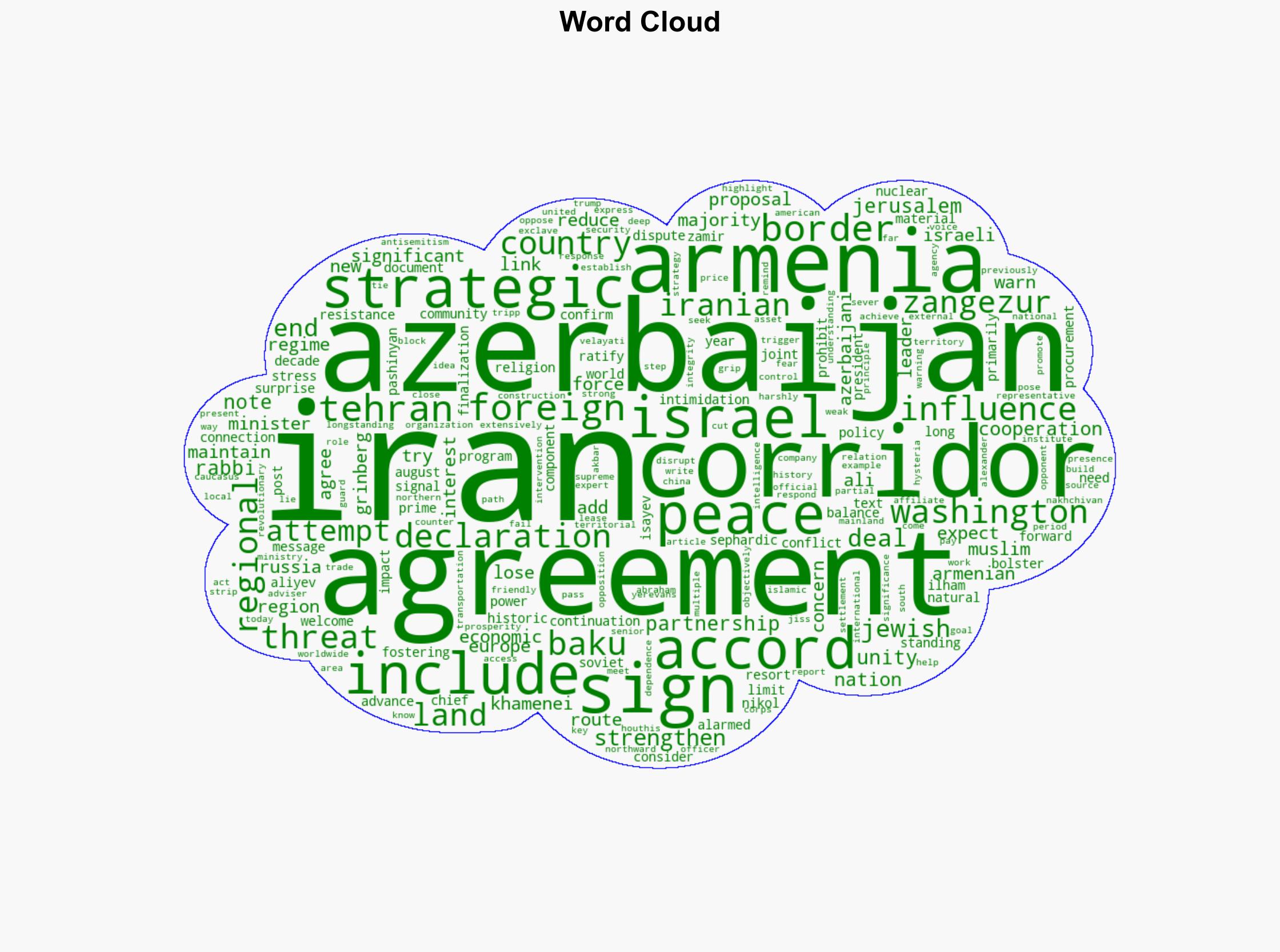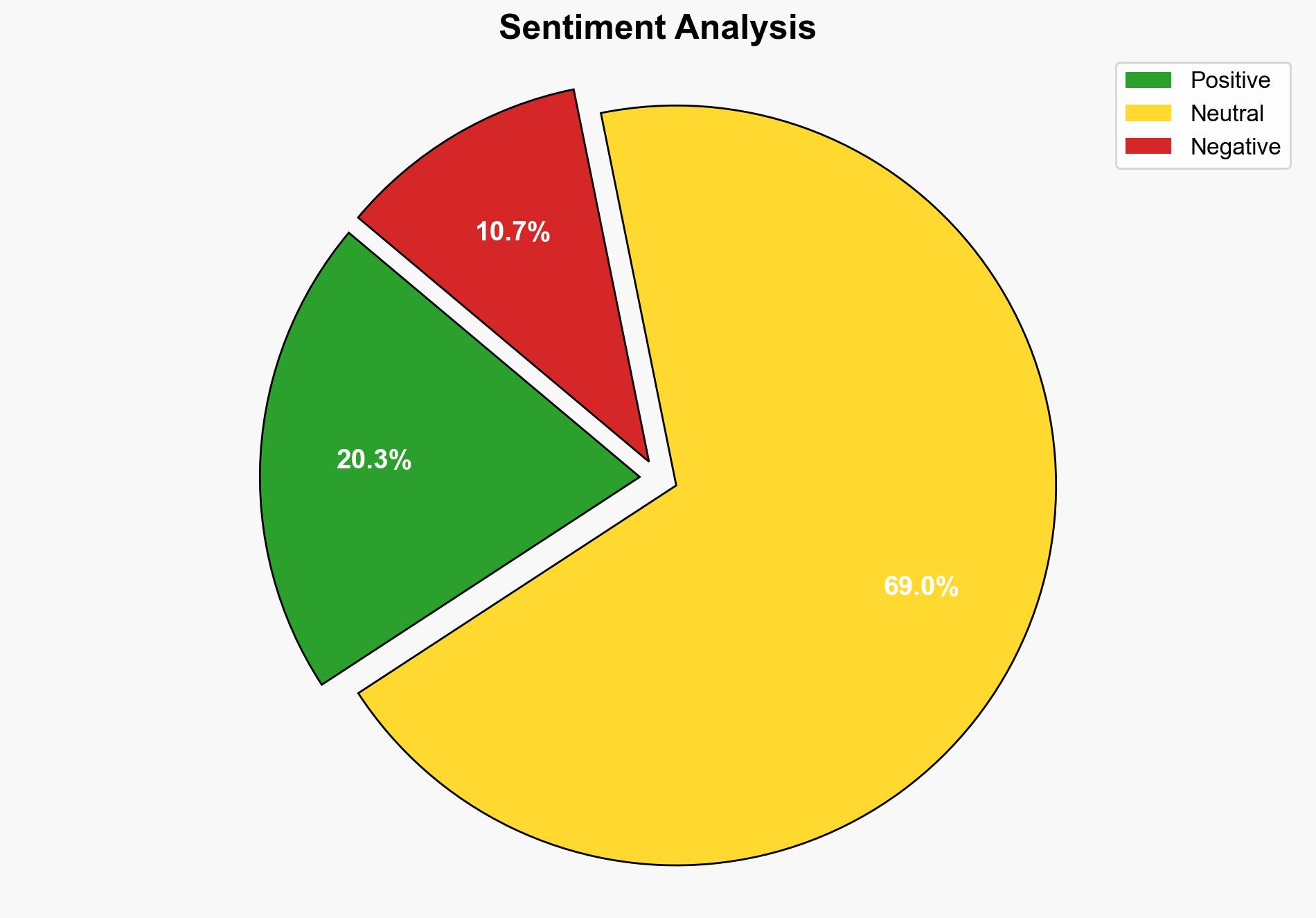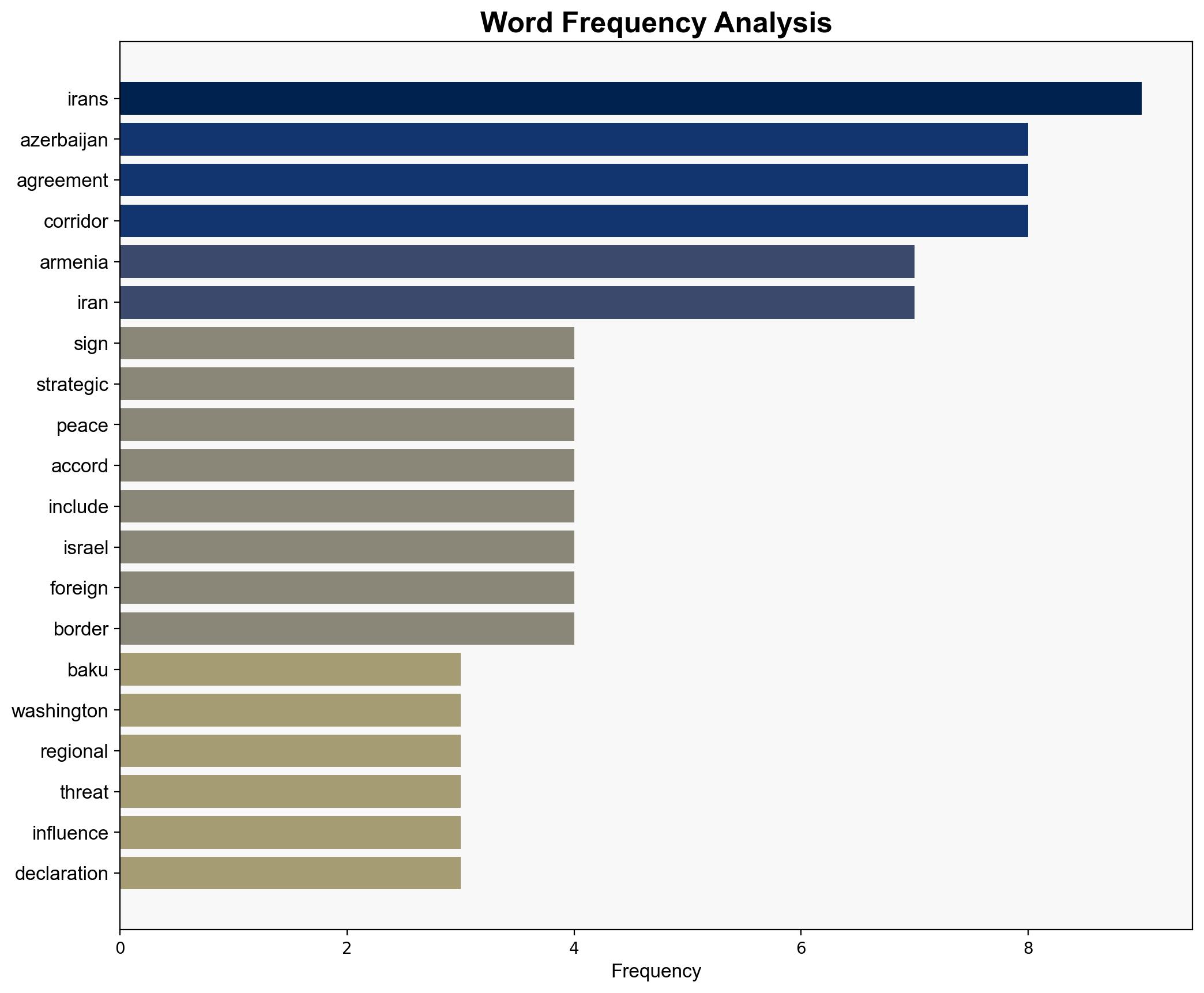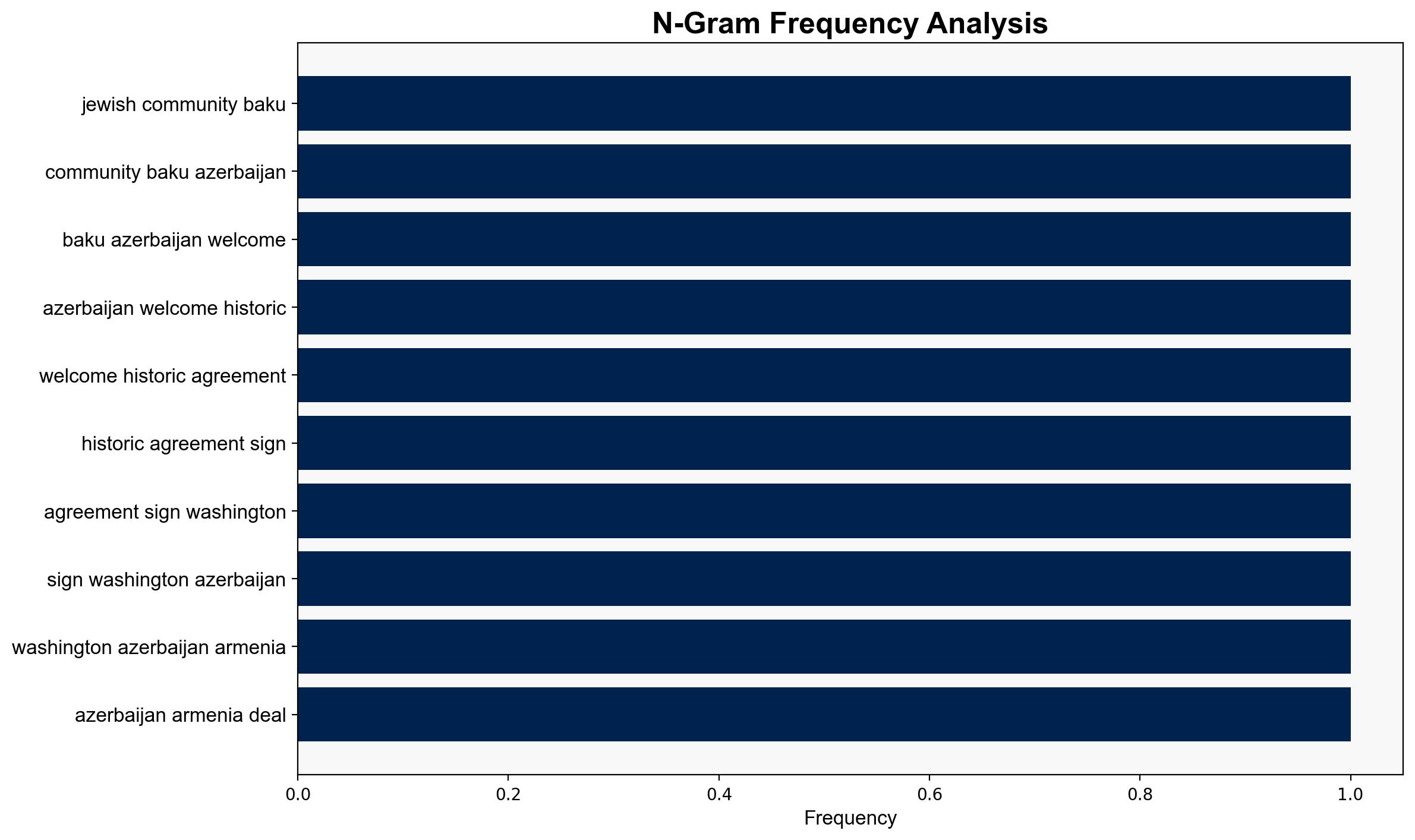Jewish community in Baku welcomes agreement with Armenia ‘A blow to Iran’ – Israelnationalnews.com
Published on: 2025-08-10
Intelligence Report: Jewish community in Baku welcomes agreement with Armenia ‘A blow to Iran’ – Israelnationalnews.com
1. BLUF (Bottom Line Up Front)
The strategic judgment is that the agreement between Azerbaijan and Armenia, supported by Israel, is likely to shift regional power dynamics, reducing Iran’s influence in the South Caucasus. The most supported hypothesis is that this agreement will bolster Azerbaijan-Israel ties and limit Iran’s strategic reach. Confidence level: Moderate. Recommended action: Monitor Iranian responses and prepare for potential regional destabilization efforts by Tehran.
2. Competing Hypotheses
1. **Hypothesis 1**: The agreement will significantly reduce Iran’s influence in the region by strengthening Azerbaijan-Israel ties and creating new economic corridors that bypass Iran.
– **Supporting Evidence**: The agreement includes strategic economic components and a transportation corridor that could diminish Iran’s trade routes and influence.
– **Structured Analysis**: Using Cross-Impact Simulation, the agreement’s potential to alter trade routes and alliances suggests a high probability of reducing Iran’s influence.
2. **Hypothesis 2**: The agreement will provoke a strong Iranian response, potentially destabilizing the region and undermining the agreement’s objectives.
– **Supporting Evidence**: Iran’s warnings and historical behavior suggest it may take aggressive actions to counter perceived threats to its territorial integrity and regional influence.
– **Structured Analysis**: Bayesian Scenario Modeling indicates a moderate probability of Iranian countermeasures, considering past regional interventions.
3. Key Assumptions and Red Flags
– **Assumptions**: It is assumed that Azerbaijan and Israel will maintain their strategic partnership without significant external interference. Another assumption is that Iran’s capacity to respond is limited by its current geopolitical challenges.
– **Red Flags**: Iran’s explicit threats and historical precedent for regional intervention. Lack of detailed information on the economic and military components of the agreement.
– **Blind Spots**: Potential internal dissent within Armenia or Azerbaijan that could affect the agreement’s implementation.
4. Implications and Strategic Risks
– **Economic**: The new corridor could shift trade patterns, potentially isolating Iran economically.
– **Geopolitical**: Increased tensions between Iran and Azerbaijan/Israel could lead to broader regional instability.
– **Psychological**: The agreement could embolden other regional actors to challenge Iranian influence, altering the balance of power.
– **Escalation Scenarios**: Iranian military posturing or cyber-attacks against Azerbaijani or Israeli interests.
5. Recommendations and Outlook
- Strengthen intelligence monitoring of Iranian military and cyber activities in the region.
- Engage in diplomatic efforts to reassure regional allies and mitigate potential Iranian aggression.
- Scenario Projections:
– **Best Case**: Successful implementation of the agreement enhances regional stability and economic growth.
– **Worst Case**: Iranian retaliation leads to military conflict or significant cyber disruptions.
– **Most Likely**: Gradual reduction in Iranian influence with periodic tensions and minor skirmishes.
6. Key Individuals and Entities
– Nikol Pashinyan
– Ilham Aliyev
– Zamir Isayev
– Ali Akbar Velayati
– Alexander Grinberg
7. Thematic Tags
national security threats, regional focus, geopolitical dynamics, economic corridors, Iran-Azerbaijan relations





